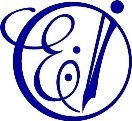
Recently, a potential client came to me with the idea that I could edit his book in a few weeks. Although there is no rule as to how long an editing job will take, there are ways to estimate how long it will take and how much to charge. A few weeks is certainly not enough time to edit an average-length book when you are also working on several other projects.
The Editorial Freelancers Association estimates that the pace for basic copyediting is 5–10 standard pages* per hour at an hourly fee of $30–$40. Heavy copyediting reduces the pages completed in an hour to 2–5 and increases the hourly fee to $40–$50. And for line editing, 1–6 pages may be completed in an hour with an hourly fee of $50–$60.
Personally, I leave the calculations up to Excel. First, I read a few pages from different chapters to gauge the type of editing needed. Then, I input the estimated number of pages completed per hour, along with the total word count, in an Excel formula, and it calculates how many hours the project will take and estimates the fee for the project.
Of course, estimates are just that: estimates. Every project is different and will have its own challenges. Be sure to add more time to your estimate if your project includes fact checking, is a text by a nonnative English writer, or has tables and references.
To learn more about the editing process, I offer Editing 101, where you will master the editing essentials! I will teach you how to be able to recognize the specific differences between critiquing, developmental editing, copyediting, and proofreading. Whether you offer only one service or more than one, you will benefit from knowing the difference between the levels of editing. For those who offer more than one type of service, I will explain how to easily transition between the various levels of editing when working on more than one project in a single day.
* A standard page is considered to have 250 words.
